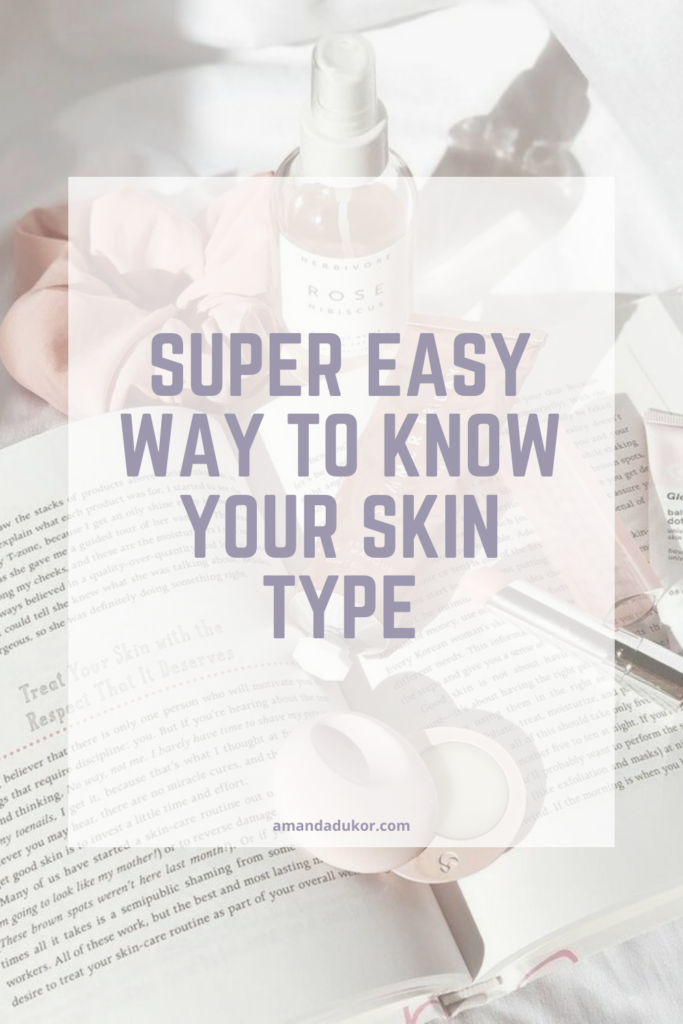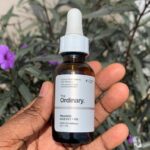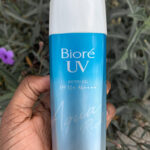Before I go into the actual content of this post which is basically answers the question, “how can I know my skin type?” I think you should know the importance first for you to actually appreciate it.
Skin care is something I started to enjoy only like mid 2020. Before then, everything I used for my skin was chosen through trial and error. I tried a good number of recommended products but it almost always ended in tears. Even the ‘holy grail’ black soap was horrible on my skin. It would literally suck out all the moisture from my skin making it terribly sensitive. Lotions that some of my friends used either gave me acne, excessive sweat or excessive ‘toning’. This continued till I found a moisturizer and soap that gave me zero issues and so I stuck with them and decided that I wasn’t going to try out any new products to avoid problems.
Fast forward to mid 2020 when I started developing interest in skincare all over again. I did my research and I realized that knowing your skin type is fundamental to creating a skin care routine that actually works for you. I also realized that the reason why what works for others may not work for you is largely because of the difference in skin types. Today, I get the most out of my skincare routine because I customized it to suit my skin type. Now back to answering the question of the day!

How can I know my skin type?
A super easy way to know your skin type is by simply observing how your skin behaves after cleansing. To carry out this test, you can follow these easy steps:
- Wash your face with your cleanser
- Dry skin with a clean towel
- Leave skin for about 15-20 minutes
If the skin;
- looks hydrated, not too oily, not too dry then it is a normal skin
- appears dry and feels tight, then it is a dry skin
- has an oily appearance throughout, then it is an oily skin
- appears oily only in the t-zone (forehead, nose and chin) then it is a combination skin
Normal skin
This is a well balanced skin that is neither too oily nor too dry. It is usually smooth with barely visible pores. People with this skin type are honestly the lucky ones as their skin is very unproblematic and hardly ever experiences break outs. They also have high product tolerance so they can easily experiment and try out different products.
Dry skin
Dry skin produces less sebum than normal skin. For this reason, it lacks the necessary oils to seal in moisture and so it looks dull and rough/flaky. If you have dry skin, it is advised that you drink enough water daily and moisturize your skin as much as needed throughout the day with a very hydrating moisturizer.
Oily skin
Oily skin produces a lot more sebum than normal skin. It is characterized by large pores with a greasy appearance and excessive shine. This skin type is more prone to acne breakouts and blemishes. People with this skin type are usually advised to go for oil free cleansers and lightweight non-comedogenic moisturizers (i.e moisturizers that do not clog skin pores).
N.B: If you have oily skin, you still need a moisturizer. Not moisturizing will only make your skin produce more sebum.
Combination skin
This is a mix of both oily skin and dry/normal. If you’re having a hard time placing your skin type in any of the above categories then you most likely have a combination skin. Combination skin can easily be recognized by an oily t-zone area and a dry/ normal cheek area. Taking care of this skin type can be tricky as different parts of the skin require different things so you may need to treat each part according to its needs.
Sensitive skin
In addition to the earlier mentioned skin types, you can also have a sensitive skin. That is, it is possible to have dry and sensitive, combination and sensitive, oily and sensitive or normal and sensitive. But whatever the case may be, sensitive skin is triggered by certain ingredients or conditions and these ingredients or conditions can cause the skin to itch or redden. If you have sensitive skin it would be helpful if you know the environments, conditions and ingredients that trigger your sensitivity and avoid them.
I am confident that with this mini guide, I have answered the question, “How can I know my skin type?” and now you can create a skincare routine that works for you!







What’s t-zone?
Good Skincare is the bomb, saves you a lot of stress! Thanks boo.
I know righttt
You’re soo lucky. Thanks for reading!
Am glad at this….(article), the procedures stated here for one to know his/her skin type, are really fantastic. And I got to know mine (Normal Skin)
Thanks Always Smart Doc✨
C’mon shut up
Thanks so much Princess 💕